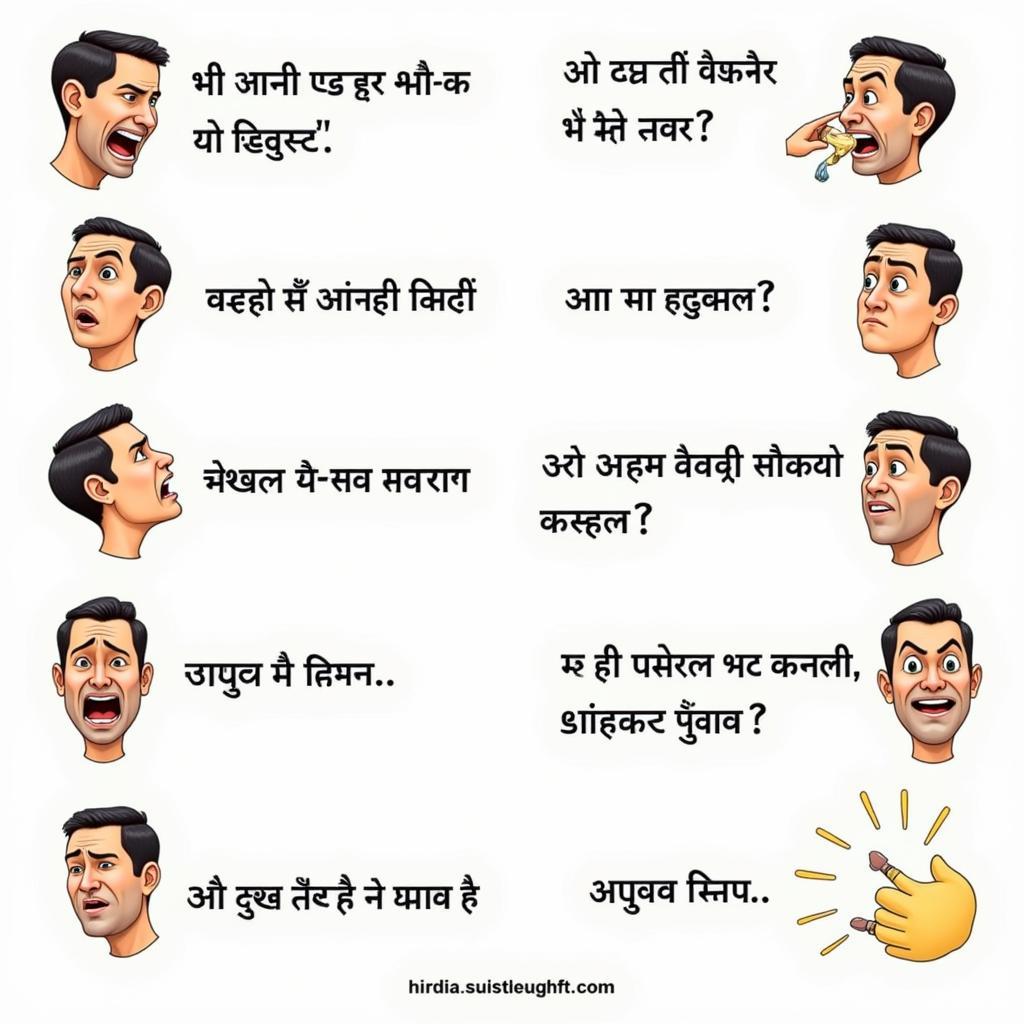Kismat Kharab Quotes In Hindi reflect a common sentiment of bad luck or misfortune. These phrases, often imbued with a sense of irony or resignation, offer a glimpse into how people process and express feelings of frustration and disappointment when things don’t go their way. They are a cultural touchstone, providing a shared language for navigating life’s ups and downs.
Delving into the Meaning of “Kismat Kharab”
“Kismat” translates to fate or destiny, while “kharab” means bad or spoiled. Thus, “kismat kharab” literally means “bad luck” or “bad fate.” These quotes are often used to express a feeling of helplessness in the face of unfortunate circumstances, sometimes tinged with humor or self-deprecation. They can range from simple exclamations to more elaborate reflections on life’s unpredictability.
Why Do People Use “Kismat Kharab” Quotes?
People use these quotes for a variety of reasons: to commiserate with others, to make light of a difficult situation, or even to simply acknowledge the role of fate in their lives. The quotes can be a way of processing negative emotions, finding solace in shared experience, and even building community.
 Hindi Expressions of Bad Luck
Hindi Expressions of Bad Luck
Exploring Common “Kismat Kharab” Quotes
There’s a wide range of “kismat kharab” quotes, each with its own nuance and flavor. Some focus on the feeling of being cursed, while others highlight the absurdity of life’s twists and turns. Some common examples include:
- “मेरी किस्मत ही खराब है” (Meri kismat hi kharab hai): This translates to “My luck itself is bad,” a simple and direct expression of misfortune.
- “क्या करूँ, किस्मत खराब है” (Kya karun, kismat kharab hai): This translates to “What can I do, my luck is bad,” expressing a sense of resignation.
- “ऊपर वाले की मर्जी” (Upar wale ki marzi): This phrase, meaning “God’s will,” reflects a belief in a higher power controlling destiny.
The Cultural Significance of These Quotes
“Kismat kharab” quotes are deeply embedded in Hindi culture. They reflect a particular worldview that acknowledges the role of fate and destiny, often combined with a pragmatic acceptance of life’s challenges. These phrases are not just expressions of bad luck, but also a way of navigating the complexities of life.
Finding Humor and Resilience in “Kismat Kharab”
While these quotes express feelings of frustration, they can also be a source of humor and resilience. By acknowledging and even embracing their bad luck, people can find a way to move forward, even when faced with setbacks. The shared language of these quotes creates a sense of camaraderie, reminding individuals that they are not alone in their struggles.
Turning Bad Luck into a Shared Experience
The use of “kismat kharab” quotes can transform a personal experience of misfortune into a shared one. This can be a powerful way of building social bonds and finding comfort in the face of adversity. The quotes can even be used to create humor, lightening the mood and fostering a sense of resilience.
“The beauty of these quotes lies in their ability to transform a negative experience into a shared one, fostering connection and resilience,” says Dr. Anjali Sharma, a cultural anthropologist specializing in Indian linguistic traditions. “They are not just about complaining, but about finding humor and strength in the face of adversity.”
Conclusion
Kismat kharab quotes in Hindi are more than just expressions of bad luck. They represent a complex interplay of cultural beliefs, emotional responses, and social connection. Understanding these quotes offers a glimpse into the human experience of navigating life’s unpredictable journey. By acknowledging and sharing our experiences of misfortune, we can find strength, humor, and ultimately, resilience.
FAQ
- What does “kismat kharab” mean? (“Kismat kharab” means “bad luck” or “bad fate.”)
- Why are these quotes important in Hindi culture? (They reflect cultural beliefs about fate and provide a shared language for expressing misfortune.)
- Are these quotes always negative? (While expressing frustration, they can also be used for humor and building resilience.)
- What are some common “kismat kharab” quotes? (Examples include “Meri kismat hi kharab hai” and “Kya karun, kismat kharab hai.”)
- How can these quotes be used positively? (They can foster community and resilience by turning a personal experience into a shared one.)
- Can you provide more examples of “kismat kharab” quotes? (Yes, explore further by searching our website for related articles.)
- Are there similar expressions in other languages? (Yes, many cultures have their own ways of expressing bad luck, explore our resources on cross-cultural expressions.)
Need further assistance? Contact us at Email: Contact@ViperCircle.com address: G-5, लोअर परेल, सेनापति बापट मार्ग, मुंबई, महाराष्ट्र – 400013, भारत।. We have a 24/7 customer support team.